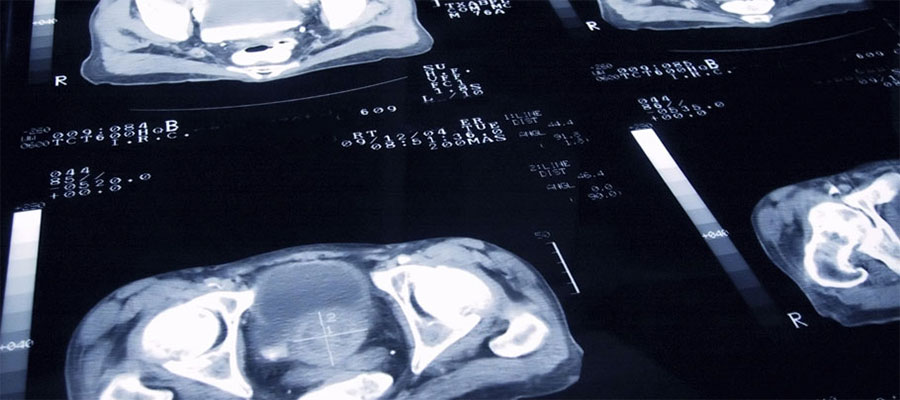Combined hormone/radiotherapy treatment improves event-free and disease-free survival in patients with localised intermediate risk prostate cancer; long-term results from EORTC Trial 22991
30 Jul 2021
Prostate cancer is the fourth most common cancer worldwide, and the second most common among men. Radical prostatectomy (surgery) and external-beam radiotherapy (EBRT) in combination with androgen deprivation therapy (ADT) are recommended treatment options for patients with localised intermediate risk prostate cancer. Adding ADT to EBRT to patients with localised intermediate risk prostate cancer significantly increases their event-free survival (EFS)1 and disease-free survival (DFS)2, and these effects are still evident after 12 years of median follow-up, say the investigators in the latest results from an EORTC trial published in The Journal of Clinical Oncology this week*.
The trial was launched in 2001 and aimed to investigate whether giving 6 months of ADT concomitantly with EBRT at three doses of radiation (70, 74 and 78 Gy) to men with intermediate and limited high-risk prostate cancer would be beneficial, as compared to EBRT alone.
The primary endpoint in the multi-centre international study was EFS, and patients were randomised between ADT plus EBRT and EBRT alone. The first results, published in 2016 after a median patient follow-up of 7.2 years, showed an improvement in both EFS and DFS in the pooled group of intermediate and limited high risk disease patients. The effects on EFS and DFS were maintained in the longer term, at 12-year follow-up of the 481 patients classified as having intermediate risk and irradiated at a minimum target dose of 74 Gy. In the EBRT + ADT arm, 10-year EFS was 68.1%, as opposed to 49.3% in the EBRT-alone group. DFS was also improved in the experimental group, with 10-year DFS rates of 76.2% and 66.0%, respectively. The effects on distant metastasis-free survival (DFMS) and overall survival did not reach statistical significance.
“Nowadays, the benefit of ADT in intermediate risk prostate cancer patients remains a topic of debate given the conflicting results between studies in the literature. However, these are the most robust data from a randomised trial with long-term follow-up addressing this question. They shed light on the important clinical question of the value of ADT in men treated with radiation if dose escalation is used,” say the authors, who were led by Professor Michel Bolla, from the Radiotherapy Department Grenoble, Grenoble Alpes University, Centre Hospitalier Universitaire de Grenoble, France.
However, the authors conclude, the results from the trial cannot be extrapolated to results obtained with modern radiotherapy alone. Treatment recommendations for prostate cancer patients have changed and radiation techniques have evolved into modern technologies that allow higher doses to be safely delivered.
***********
1.Event-free survival is the length of time after the ending of primary treatment that the patient remains free of complications related to the cancer. EFS events include biochemical as well as clinical failures and deaths.
2.Disease-free survival is the length of time after treatment ends that a patient survives with no signs of their cancer. DFS events include only clinical failures and deaths.
*Short Androgen Suppression and Radiation Dose Escalation in Prostate Cancer: 12-Year Results of EORTC Trial 22991 in Patients with Localized Intermediate-Risk Disease
Related News
EORTC-1333-GUCG/PEACE III trial endpoint reached
12 Jul 2024
Meet the new EORTC Board
9 Jul 2024
EORTC-1333-GUCG/PEACE III Trial Statement
28 Jun 2024
We are pleased to announce the release of the EORTC 2023 Annual Report
17 Jun 2024
Dr Denis Lacombe, EORTC CEO, appointed stakeholder co-chair of ACT EU advisory group
24 May 2024
Clinical Trials Day 2024: a Q&A on pragmatic clinical trials
20 May 2024
EORTC/EMA workshop suggests an international way forward for treatment optimisation studies
8 May 2024
EORTC’s Participation at the ESTRO Congress 2024
29 Apr 2024
EORTC: Advancing research and treatment for rare cancers
29 Feb 2024
EORTC Fellowship Programme: celebrating more than 20 years of impactful collaboration
22 Feb 2024


